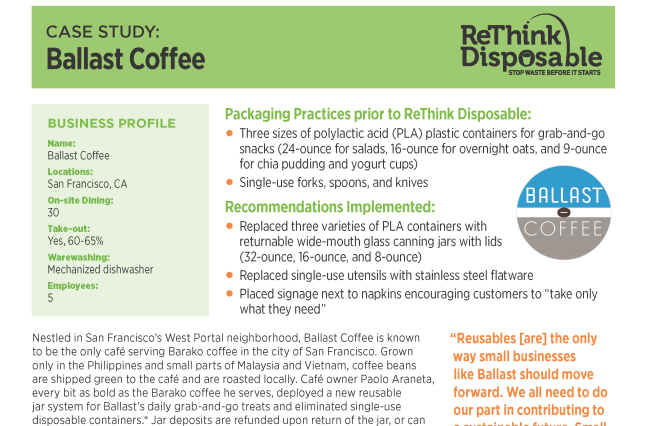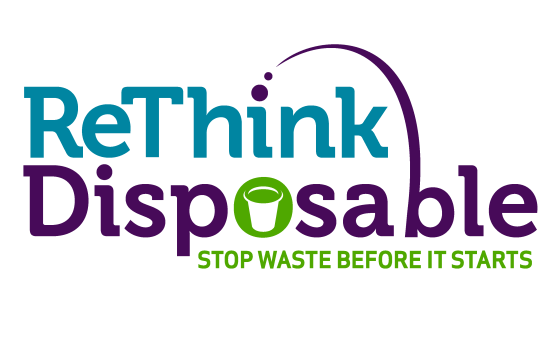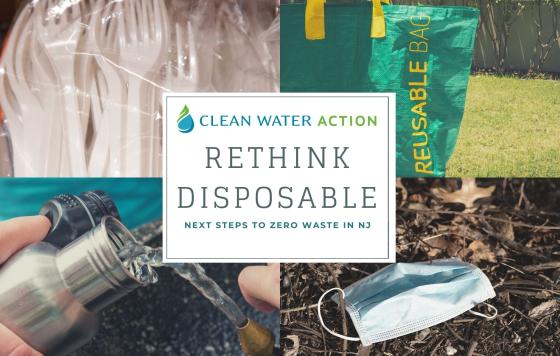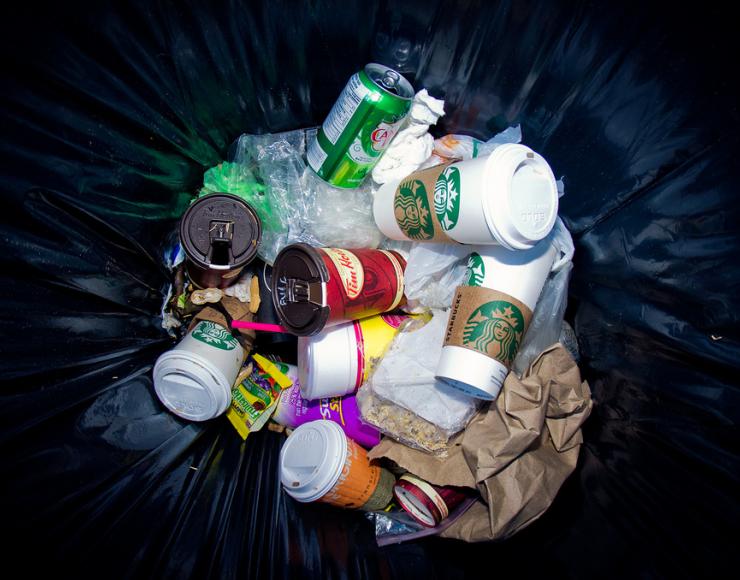
Some facts:
- By 2050, there will be more plastic in the ocean than fish.
- Each minute, the equivalent of a garbage truck full of plastic ends up in the ocean — more than eight million tons every year.
- Each day, Americans use half a billion plastic straws. Most of the straws aren’t recyclable and many of them end up in the ocean, where they can harm marine mammals and fish.
The globe is covered in plastic waste. The "to-go" coffee culture is a big part of this problem. Take Starbucks, for example. Starbucks uses more than 8,000 paper cups a minute, which adds up to more than four billion a year. 1.6 million trees are harvested every year for all of those single-use cups. Since these cups are lined with plastic, they are not really recyclable ─ only four U.S. cities even accept Starbucks paper cups for recycling. Most Starbucks paper cups (even those accepted for recycling) end up in the trash.
Starbucks is the biggest coffee company in the world. The impact of its waste on our water, oceans, and health is dramatic. A decade ago the company committed to change. It pledged to introduce a fully recyclable cup by 2015 and to selling at least 25% of its drinks in reusable cups. To date Starbucks has yet to develop that recyclable cup and only 1.6% of drinks it sells are consumed in non-disposable cups or mugs. It is nowhere near the goals it set in 2008 yet it is urging a no vote no on a shareholder-led proposal asking the company to prepare a report on efforts to develop a comprehensive approach to sustainable packaging at the 2018 shareholder meeting in March.
It is time to hold Starbucks accountable. There are 15,000 Starbucks in the US and the company plans to open a new store in China every 15 hours. If the company doesn't live up to its goals or its responsibility as a global leader, our plastic pollution problem will only worsen .
Read on for more facts about the impacts of plastic pollution.
- Plastics persist for decades in the ocean and break down into smaller and smaller pieces but never biodegrade.
- Whales, seabirds, turtles, and fish are accidentally consuming these plastics, which are making their way into our food systems with unknown effects on people and marine life.
- Starbucks and other companies are passing the cost of disposing its paper cups onto taxpayers, who subsidize the company by paying for the cost of cleaning up public places and carting all the trash to the landfill.
- In Vancouver, Canada 2.6 million paper cups are thrown in the trash every week. These disposable cups and other plastic containers cost taxpayers $2.5 million per year for public trash collection.
- In the UK, 2.5 billion coffee cups are thrown in the trash each year, and only 0.25% are recycled.
- Because of this inaction, local governments are forced to step up and propose bold zero-waste strategies. The UK recently proposed a “latte levy” and the City of Vancouver is considering a “cup fee” on disposable paper cups.
- Coca-Cola, McDonald’s, and Dunkin Donuts recently announced sustainability pledges on recycling and packaging sourcing that position the companies as industry leaders over Starbucks.
Sustainability
ReThink Disposable
ReThink Disposable Blog Series Part I: Zero Waste at Home & In Your Community
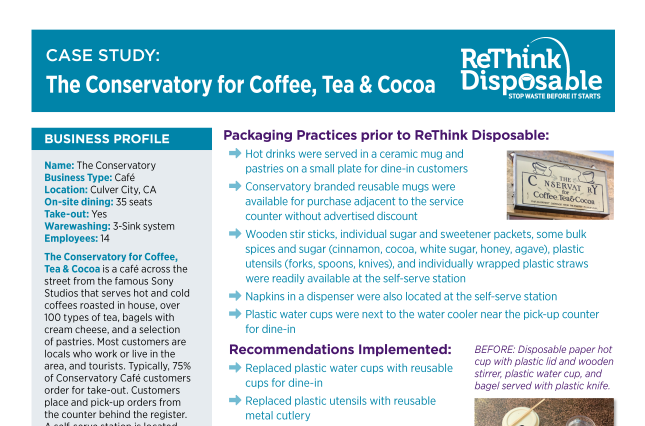
ReThink Disposable Case Study | The Conservatory for Coffee, Tea & Cocoa
